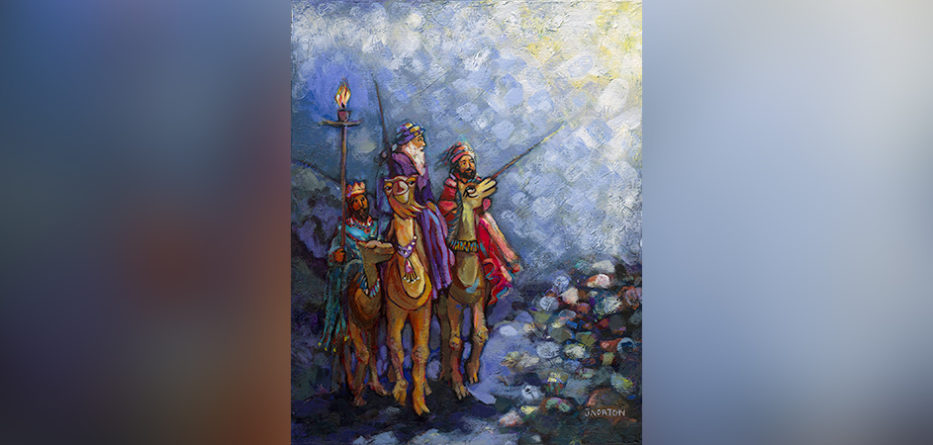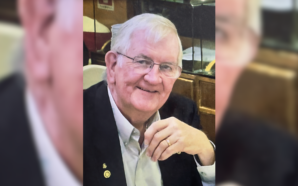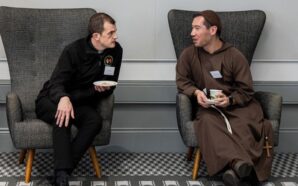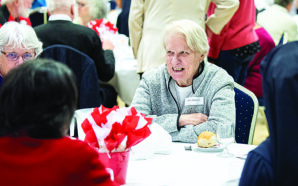Epiphany comes from the Greek epipháneia meaning an appearance or manifestation, and in Matthew’s infancy narrative, it refers to the manifestation of Christ to the Gentiles who are represented by the Magi. A tradition in early Christianity maintained that the Magi arrived in Bethlehem 12 days after the birth of Jesus and so Epiphany Eve (Twelfth Night) gives way to the feast of the Epiphany, occurring on January 8.
Matthew presents the Magi (Greek magoi) as Wise Men from the East and quite likely saw them as Zoroastrian priests who were practised in astrology, the art of reading signs in the stars and heavenly bodies. The irony here is that Jewish scholars would have regarded astrologers as fools because of their assumed ability to foretell future events and discover hidden knowledge from reading the position and movements of stars and planets. Matthew deliberately challenges this prejudice against Gentiles by highlighting the Magi as men of wisdom. Throughout his gospel, Matthew will show various non-Jewish characters coming to faith in Jesus ahead of Jewish religious authorities who should know better, but whose pathway to faith is blocked by self-interest and distorted values.
When the Wise Men arrive at the house of Joseph and Mary, they go down on their knees in worship. What an extraordinary gesture of faith and homage driven by intuition and a mystical openness to an otherworldly revelation! They have come prepared with gifts that symbolise royalty and destiny.
Adept at seeing Scripture fulfilled in the person and life of Jesus, Matthew points to passages that describe gifts of homage and deep respect for royalty. An oracle of Second Isaiah (60:6) speaks of people from foreign nations coming to Israel on camels bringing gifts of gold and frankincense. The poet of Psalm 72 sings of kings coming from Tarshish, Sheba and Seba bringing gold and precious things to Israel’s king Solomon. The Queen of Sheba (1 Kings 10:2) also brings Solomon rich spices, gold and precious things – all of these are gifts fit for a king. Matthew is depicting Jesus as worthy of universal homage from people in every corner of the earth.
What can we learn from this epiphany to such Wise Men? Their whole adventure raises the question that occurs in the book of Job (28:12), ‘Where shall wisdom be found?’ and Matthew is offering some insights in his story of the Wise Men. Wisdom is beyond learning and the gaining of information. The Wisdom books of the Bible and Jesus Himself emphasise the fact that wisdom does not lie in control, selfism or specialness, but in being open to the Spirit in moments of mindfulness.
Wisdom joins those women and men who are on the journey to wholeness, and wholeness has no place for selfism or specialness. The wisdom of authentic contentment in life depends on the quality of our relationships with the Divine Presence, the others we encounter in life, a healthy relationship with self and a broad connection with our natural environment. This wisdom of connection is the key to life in its fullness. It is our way of partaking in the life Jesus came to bring us: ‘I came that they may have life, and have it to the full’ (John 10:10).
How am I open to that life in the Spirit? Jesus spoke of the Spirit moving unpredictably here and there like the wind (John 3:8) and that we do well to be open to be inspired at any time, in any place. I can be moved by the Spirit through something I read, or heard; by a piece of music that gave me a lift or something I caught on YouTube, like a TED talk. Such little moments can be our way of growing in wisdom and experiencing the Divine Presence in nature and the world around us.
What about a resolution for the new year to be like the Wise Men – mindful and open to being touched by the Spirit?
Dr Laurie Woods is a retired senior lecturer in Biblical Studies from the Australian Catholic University and currently conducts teacher in-service sessions and parish reflection days. He lives in the Diocese of Parramatta and is a member of Our Lady of the Nativity Parish, Lawson.
This article was originally published in the 2022 Advent | Summer 2022 edition of the Catholic Outlook Magazine. You can pick up your copy of the magazine in parishes and offices across the Diocese of Parramatta now or you can read the digital version here.








